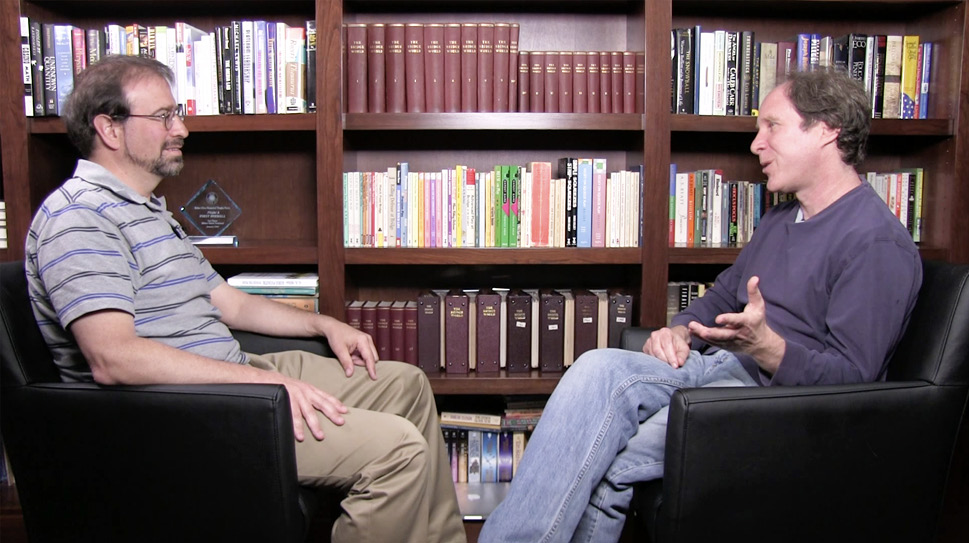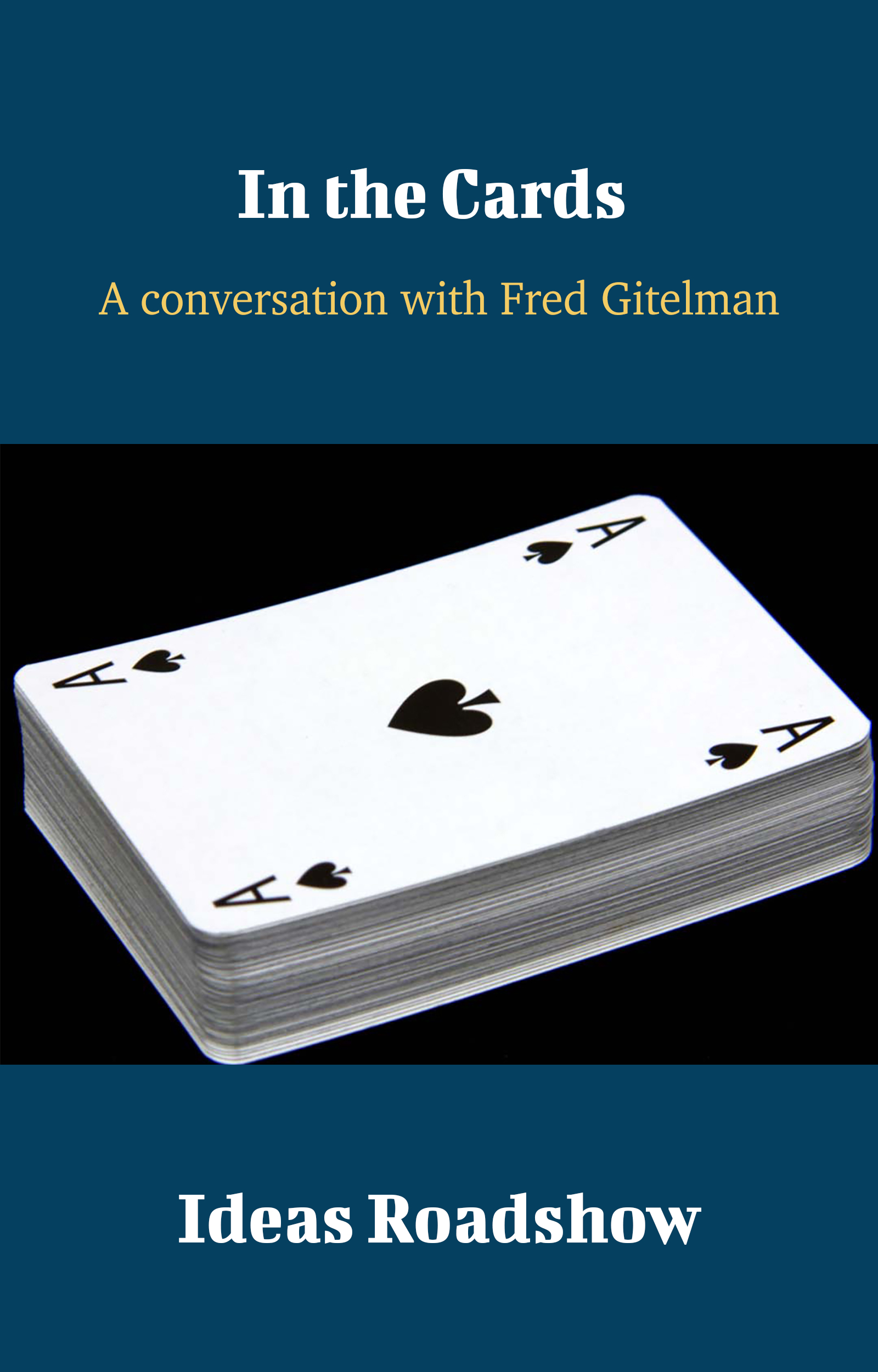The contents of this book are based upon a filmed conversation between Howard Burton and Fred Gitelman in Las Vegas, Nevada, on April 5, 2014.
Introduction
The Art of Competition
Why do we play sports and games? Is it for love of the game or the thrill of competition?
Sports journalists are all too prone to dip into hoary metaphors of artistic expression to describe a well-struck ball or a graceful save, but whats behind the thousands of sweaty hours of muscle memory that enabled such acts of on-field accomplishment to begin with?
Are most professional competitors simply in love with the idea of competitiondesperate to capitalize on whatever opportunities might be available to push themselves to the highest international level? Or does it somehow depend on the activity in question? Would Roger Federer have been a great soccer player if raised in Brazil? Would Michael Jordan?
And what about so-called mental athletesthose who opt to submit themselves to similar levels of training, sacrifice and psychological pressure in an attempt to attain international glory in a decidedly less physical, but no less stressful, arena?
Fred Gitelman serves as an interesting case in point. A professional bridge player who has won numerous high-level competitions, including a World Bridge Championship in 2010, he is also the creator of pioneering bridge educational software, the founder of the worlds largest internet bridge-playing site, Bridge Base Online (BBO), and has been a personal bridge coach to the likes of Warren Buffett and Bill Gates.
Impressive stuff. But bridge? Isnt that just a game for old fogeys?
Well, no. According to Fred, the worlds best bridge players tend to peak at age 40, when their combined emotional maturity and neural processing power are most closely aligned. The reason, he believes, that most people today think of bridge as an old persons game is a legacy of its precipitous decline since its heyday midway through the last century.
Back in the 1950s, things were very different. If you didnt play bridge, you knew people who played. If you walk up to an average person today and ask, Do you know someone who plays bridge? they might reply, Well, my grandmother plays bridge. But of course, their grandmother was a young person in the 1950s when everybody played bridge.
Nevertheless, despite its undeserved branding nightmare as a game only for retirees, bridge is still very much alive and kicking. Its played all over the world and increasingly online, in no small way thanks to Fred and his BBO colleagues. And even though their site is free to all, the company can still make a considerable profit by simply charging one dollar for its associated tournaments.
Only about 10% of the people who log in to our site ever play these tournaments and give us a dollar. But there are so many people playing that 10% of them is quite a lot. Its very strange making money one dollar at a time, but if you have enough dollars it works.
Interesting enough. But Freds story is particularly intriguing because it gives us a glimpse into this fiercely competitive mental arena. What actually happens, I wondered, when the best bridge players in the world sit down to compete? What toll does that sort of competition take, mentally and physically?
It certainly takes a lot out of you. The tournament I just played in Dallas was 10 days long. You play about eight hours a day in two sessions. And when youre playing, youre just sitting there thinking and thinking, intensely concentrating. At the end of the day, it doesnt matter what kind of shape youre in, youre exhausted. By the end of the week, Ive usually lost about 10 pounds.
Not much different than a professional athlete at all, then. And a rather far cry from the average grandmother.
But lets return to our question of motivation. Whats behind it all? An insatiable lust for competition in any form? A testosterone-driven determination to humiliate ones opponent?
For Fred, at least, nothing could be further from the truth. As a teenager, he simply fell in love with the game and couldnt stop himself from devoting every available moment to improving his skills. It had nothing to do with competition per se, he maintainsindeed, his is of an inherently non-competitive nature. But then, at a certain point, he felt that he had no choice but to change his fundamental psychological outlook if he was going to continue improving.
After I had been playing bridge for about 10 years, I began to get noticed by the better players in Canada, the elite players who represented Canada internationally, and they started to invite me to play bridge on their teams. At the time it was a massive honour: these people were my ultimate heroes. I wanted to be just like them and I was thrilled to have a chance to play with them. They were highly competitive people who were trying to be the best in the world, and if I wanted to stick around them I had to force myself to become much more competitive than I ordinarily would have been, because they were expecting that.
I guess, consciously or not, I underwent some kind of personality transition and became a competitive person. At that time I thought my goal was to become the best, and the best is to win the world championships. That was around 1990, so it took me 20 years to do it. But 20 years later, in 2010, I won a world championship.
Successfully undergoing this sort of competitiveness transplant in order to become a world champion cant be too common. But what happens then, I wondered? Does the change become permanent? Or do the competitive juices fade away after having finally scaled the summit?
For Fred, it definitely looks like the second option has the upper hand for the moment.
Well, the final chapter has not been written yet, but I think thats the way its likely to go. Its kind of strange, really. I still love the game very much, but Im just not that interested in playing competitively right now. I cant say for sure that thats how Im going to feel in a year or two, but for now I feel like Ive done what I set out to do. Ill stay very interested in bridge, of course, but Im not necessarily trying to be the best.
Score one for the love of the game, then. After having become world champion, that is.
The Conversation










